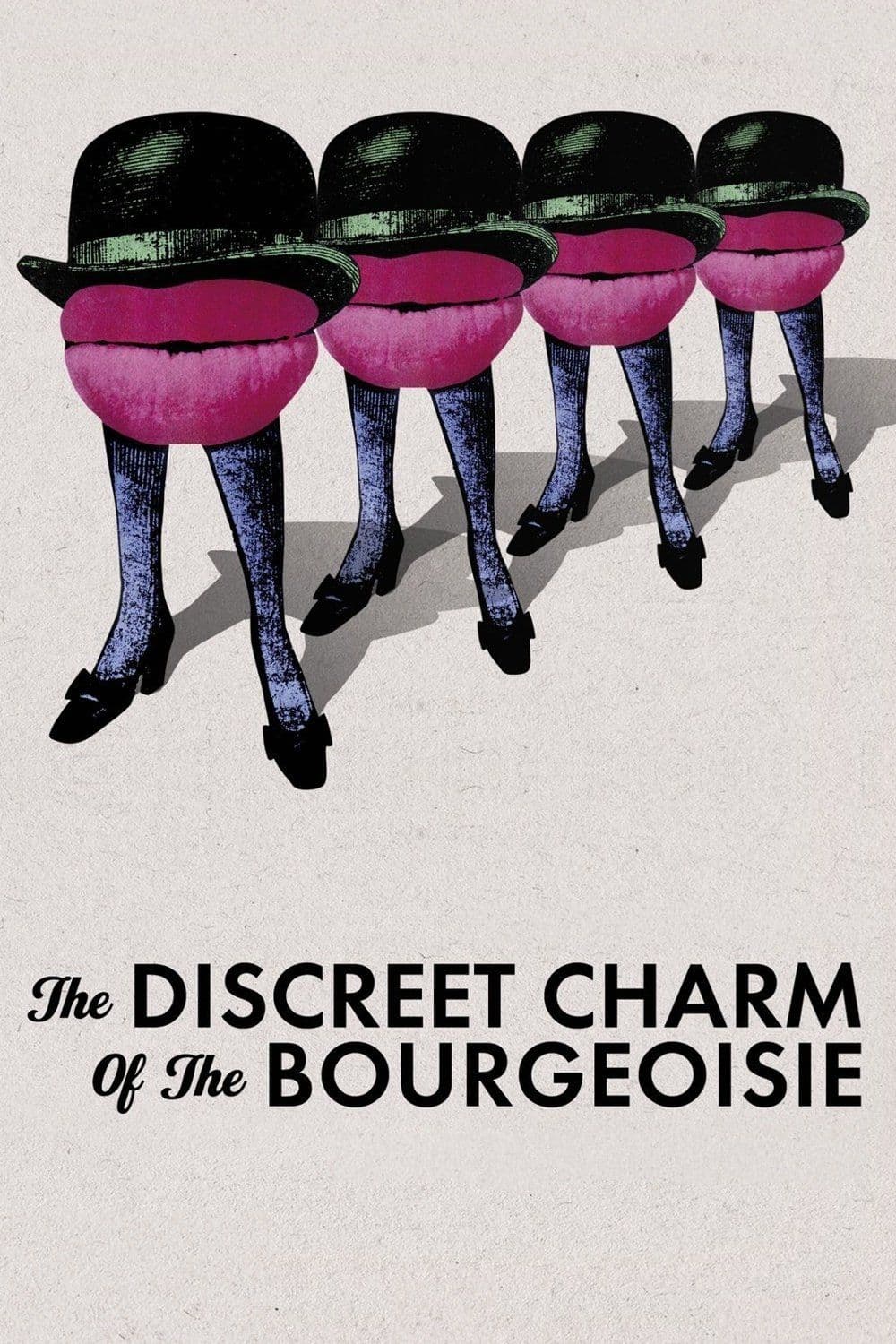
The Discreet Charm of the Bourgeoisie
1972
Rate this movie
Average: 0.00 / 5
(0 votes)
Director
A surreal, sardonic, and irreverent Luis Buñuel ruthlessly pillories six petit-bourgeois characters who, throughout the entire film, attempt in vain to dine together. A gastronomic obsession that transforms into a perennial, frustrating, and often hilarious hunt for worldly pleasure, almost a secularized version of the quest for the Grail for corrupt and frivolous souls. This repeated, failed culinary ritual is not just a comedic device, but the beating heart of a fierce critique.
Each time, they will be interrupted by the most grotesque apparitions and the most bizarre impediments. These are not mere interruptions, but genuine ruptures in the thin veneer of reality, or perhaps, more precisely, in the layers of their own psychological repression and social hypocrisy. From dream visions merging with wakefulness, to encounters with brigands, police officers, soldiers, and even deceased individuals re-emerging from the past, the narrative seamlessly glides between the plausible and the hallucinatory. This limbo, where dream erupts into wakefulness and logic dissolves without fanfare, is the hallmark of a director who had made surrealism his existential grammar since Un Chien Andalou, but who here applies it with a maturity and surgical precision that makes it even more unsettling.
The dinner quickly becomes a metaphor for the indolence of a class that, at that time, took on the profile of a cultural enemy for much of the European intelligentsia. But it is not merely indolence, but rather a genuine moral atrophy, a perverse inability to confront reality, manifested in their blind adherence to empty conventions. In the post-1968 climate, in a Europe shaken by student movements, workers' protests, and the dissolution of old orders, the bourgeoisie depicted by Buñuel – with its insipid chatter, its sexual hypocrisies, and its hidden crimes – appears as a living fossil, an anachronism desperately clinging to a social etiquette devoid of all meaning. The film thus fits into a lineage of acute and disenchanted social critique, which had seen illustrious precursors in the cinema of Pasolini and the scathing existentialism of Jean-Paul Sartre.
Thus, for these people, dining becomes a feat beyond human limits, an absurd and insurmountable impediment, in a narrative crescendo still unmatched today. The accumulation of these "missed appointments" with food and, by extension, with satisfaction and reality, generates a tension that never resolves, leaving the spectator in a constant state of suspension, halfway between bitter laughter and unease. This technique of serial frustration of primary desire, almost Beckettian in its repetition, is a masterful lesson in rhythm and comic suspense, which transcends pure humor to lead into a deeper reflection on the ephemeral and deceptive nature of human aspirations. Even having a tea becomes a titanic undertaking, a symbol of their condemnation to an eternal limbo of dissatisfaction, where every simple act is burdened with a metaphysical weight and every desire remains unfulfilled.
A film that nods to Dadaism and social commitment. The Dadaist influence is manifested not only in the embrace of the irrational and the deliberate breaking of narrative expectations, but also in its intrinsic anti-bourgeois and anti-institutional nature. Like the Dadaists who rejected "high" art and the logic that had led to war, Buñuel here dismantles the scaffolding of bourgeois respectability through ridicule and paradox, exposing its emptiness. His is not a didactic portrayal of denunciation, but an internal corrosion, an acid that dissolves the foundations of normativity. Social commitment, therefore, lies not in rhetoric, but in the deconstruction of mechanisms of power and mystification.
The influence that Ionesco's theater exerted on this work is evident, with some elements of it also found in the profiles of certain protagonists. The characters of The Discreet Charm, with their inability to truly communicate, their stubborn adherence to clichés, and their superficiality, closely resemble the protagonists of The Bald Soprano or Rhinoceros, in which the absurdity of language and progressive dehumanization become a metaphor for a rootless society. In Buñuel, this theatricality of the absurd is sublimated into cinematic language, where editing and mise-en-scène amplify the sensation of a reality out of place.
The sense of the absurd does not grip the narrative to the point of making it incomprehensible; on the contrary, the narrative is fluid and highly comprehensible. There is no deliberate hermetic opacity, but rather a clear, almost didactic presentation of the irrational as an integral part of reality. Violence and bizarreness emerge with disarming naturalness, almost as if they were the logical outcome of a deep and underlying collective madness. It is precisely in this peculiarity that the semantic shift Buñuel plays with lies: the absurd reverberates from routine, from the banality of everyday life. It is the insistence on decorum, on good manners, on drawing-room chatter that makes the irruption of the armed soldier or the terrorist even more jarring and surreal. Absurdity is not an alien intrusion, but a revelation of the intrinsic alienation that permeates the characters' existence.
And it is even more unsettling in its striking semantic dichotomy. The language of The Discreet Charm is essentially a language we all know: that of formal courtesy, social conventions, drawing-room conversation. But this language, so seemingly familiar and reassuring, carries within it a deadly trigger always ready to collapse the protocol of communication, the ultimate meaning of dialogic correlation between observer and observed. Every dialogue is a potential mine, every expression of goodwill a prelude to disaster. Words lose their communicative function to become mere background noise, sonic masks behind which emptiness hides. Conversations derail into improbable anecdotes, confused dreams, or scandalous confessions, breaking the linearity of the narrative and questioning the very possibility of shared meaning. The film questions the validity of every form of human interaction when its foundations are based on appearance and the denial of reality.
Ultimately, it can undoubtedly be defined as a fabulous work, in the most etymologically pertinent sense of the term: not only 'fable-like' for its dreamlike and allegorical dimension, but also a genuine modern 'moral fable,' a cruel and magnificent apologue on the decadence of a class and, by extension, on the fragility of social constructs. The Discreet Charm of the Bourgeoisie remains an unsurpassable masterpiece, a distillation of genius that, decades later, continues to prick the viewer's conscience with its acidic satire and black humor, revealing how the absurd is not an exception, but the unwritten rule of a world that stubbornly refuses to see its own inevitable decay.
Country
Gallery
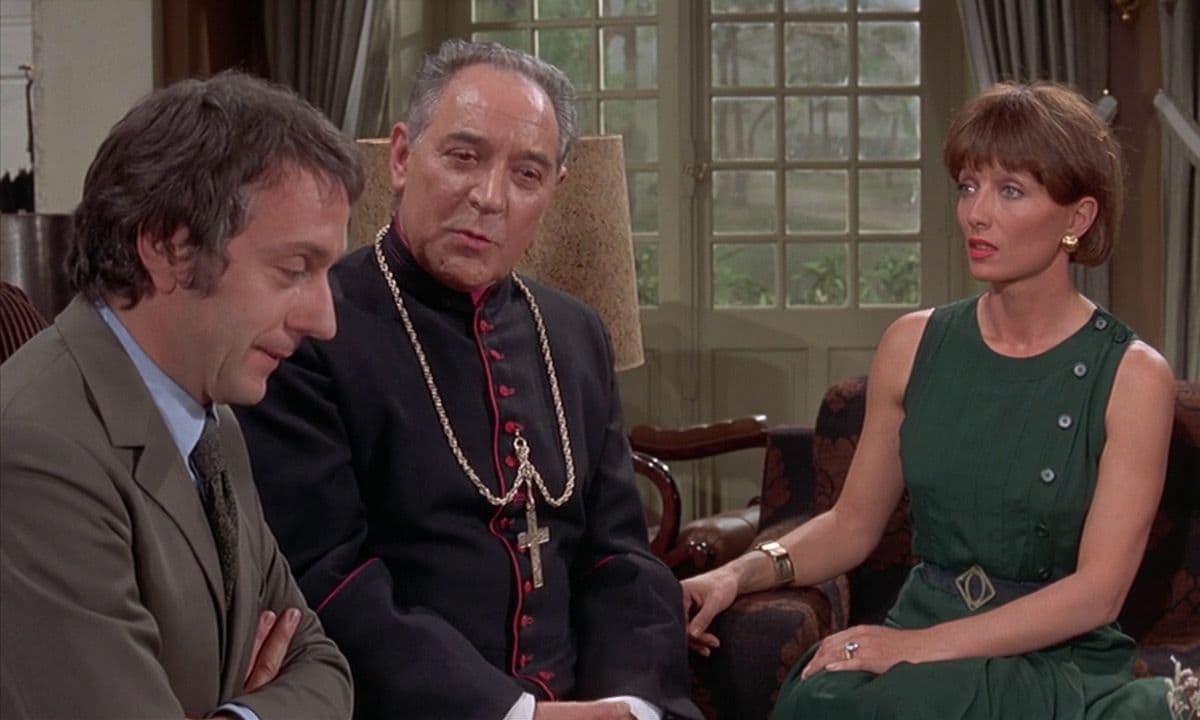
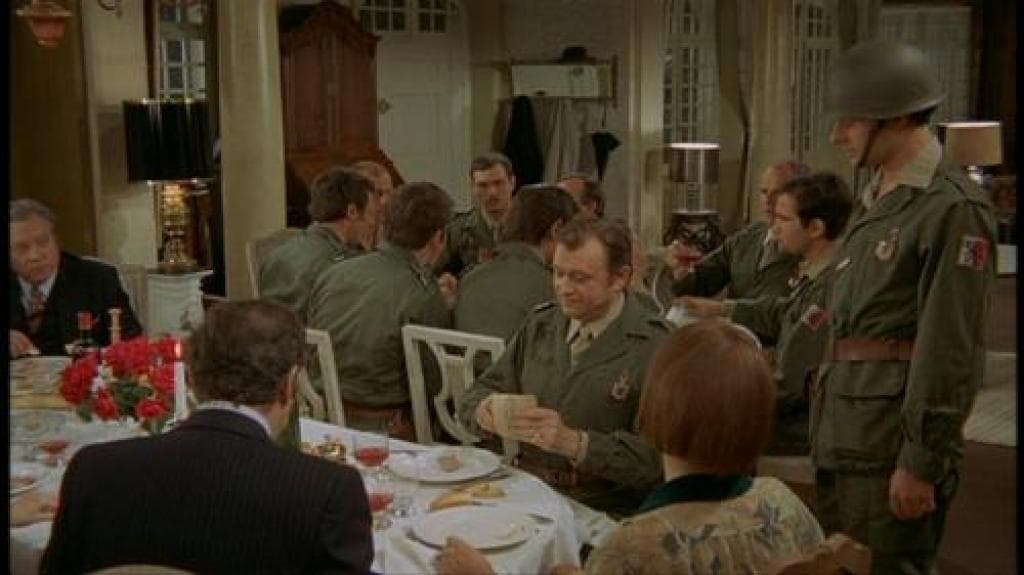
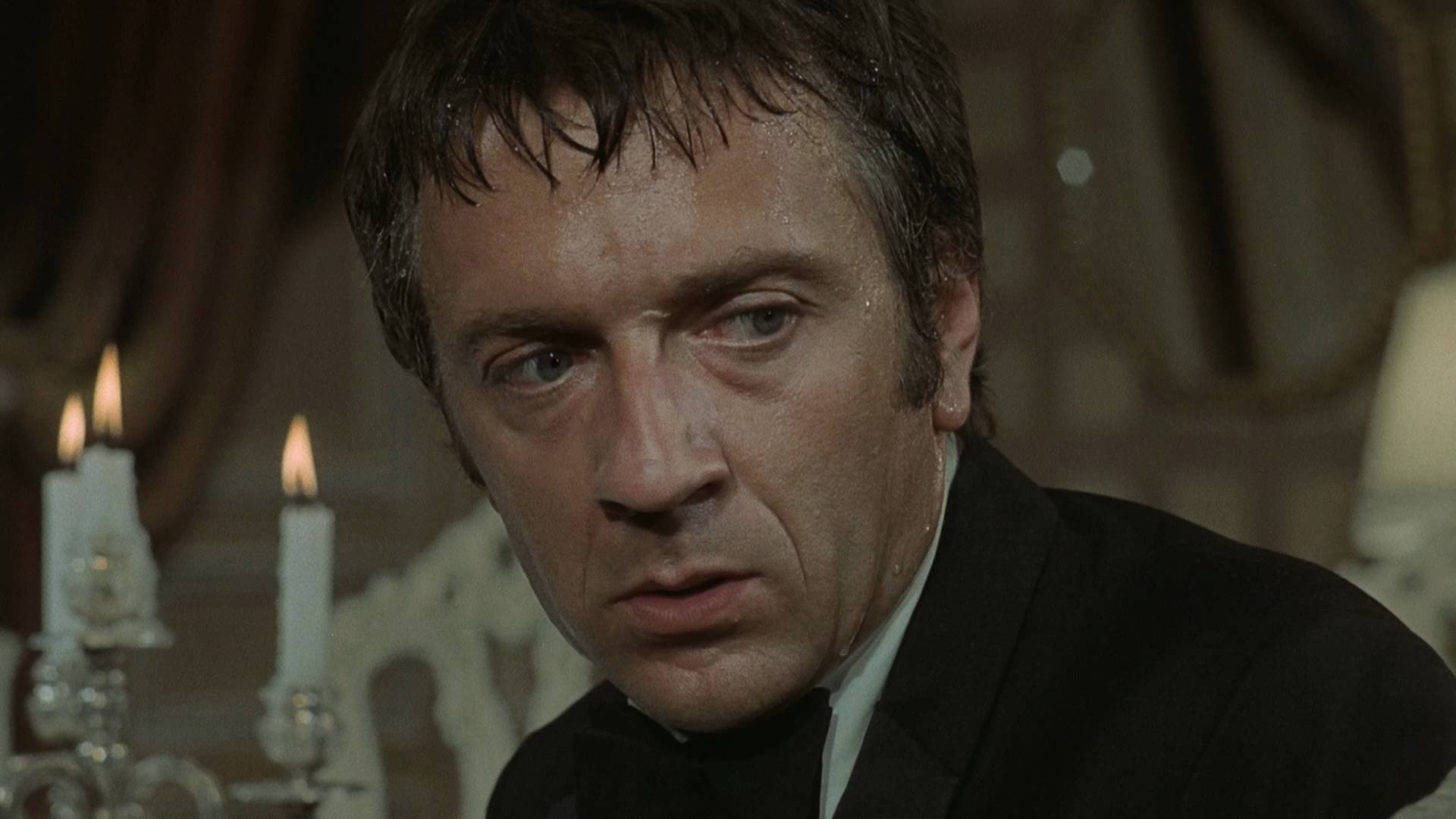
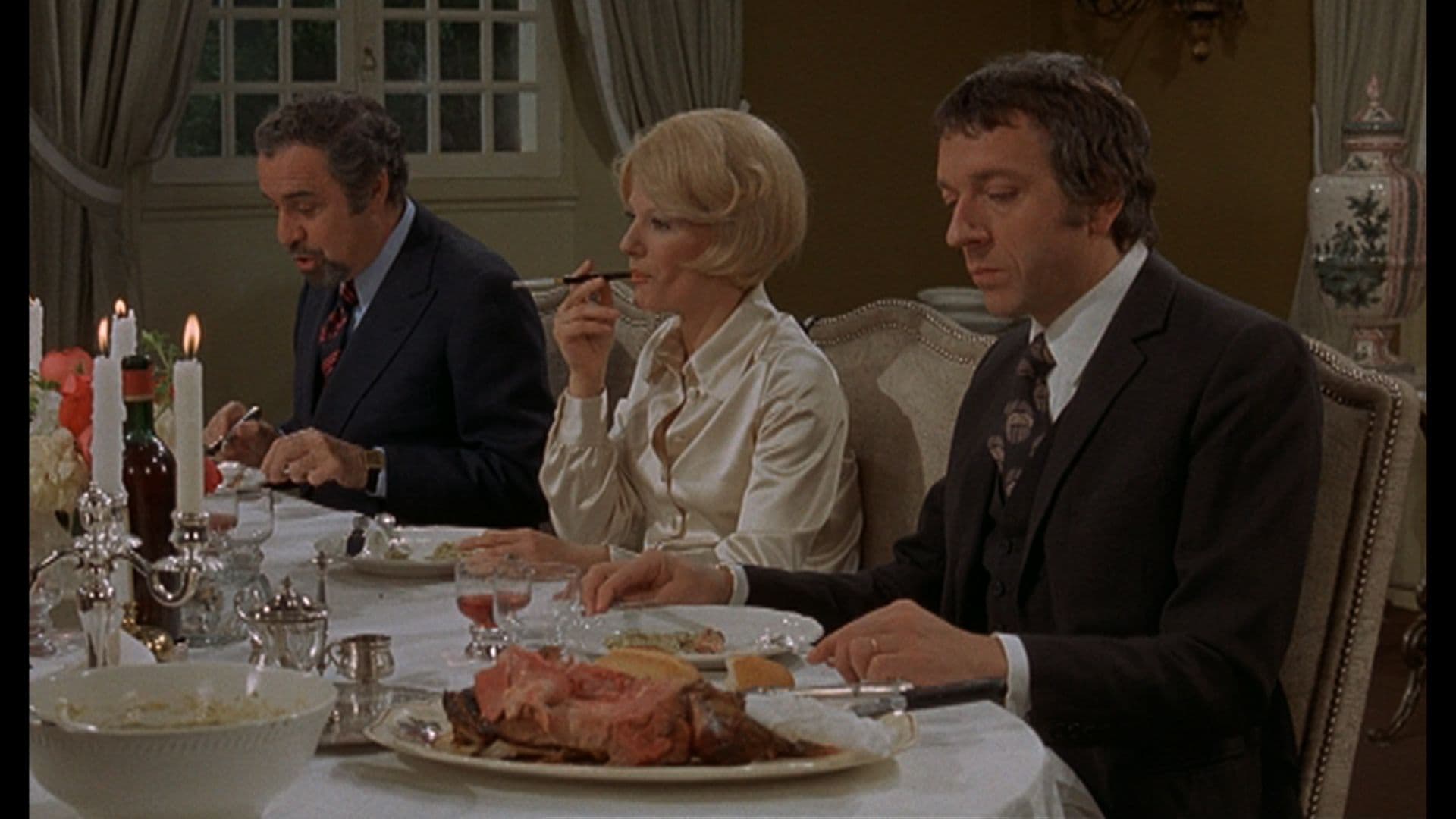
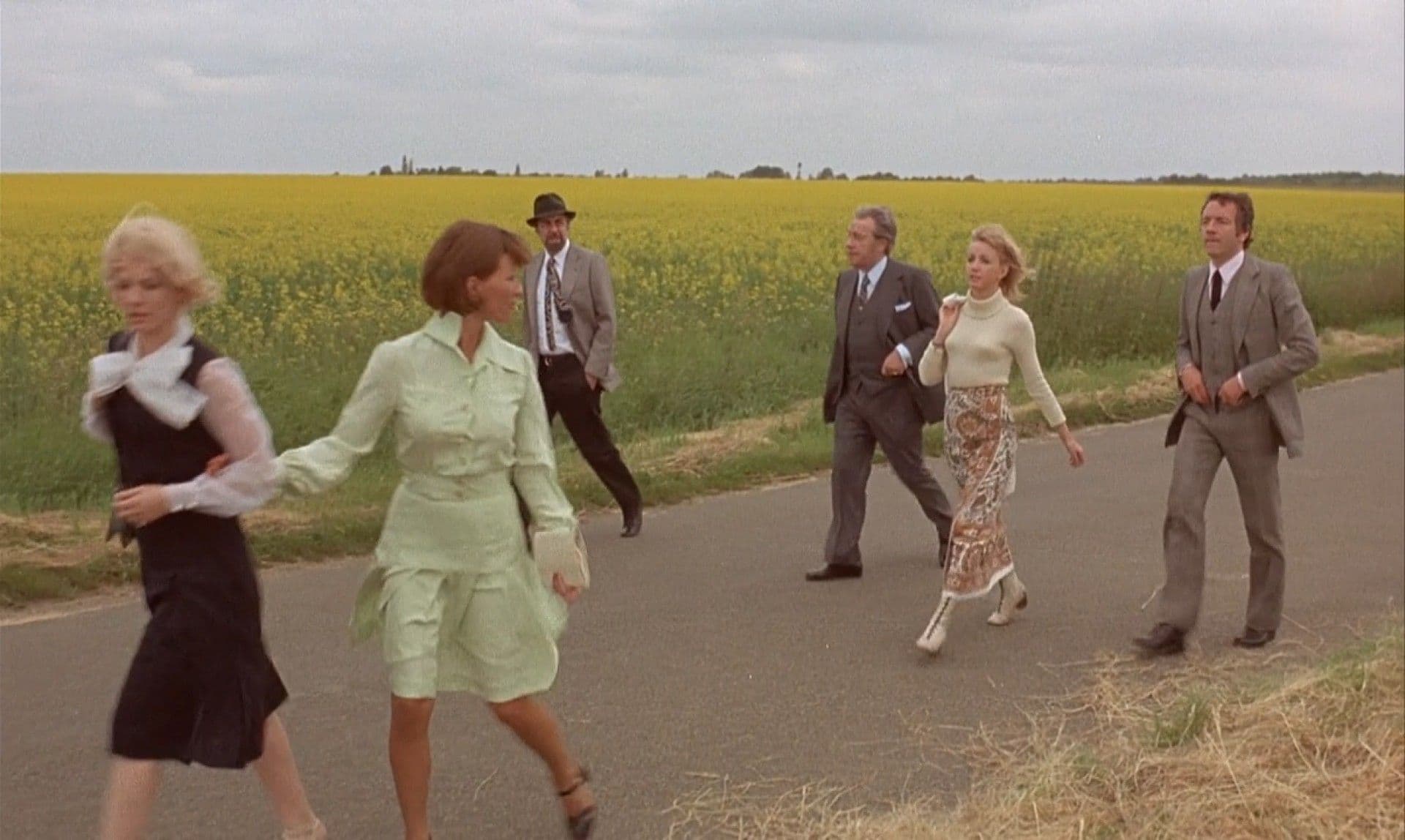

Comments
Loading comments...